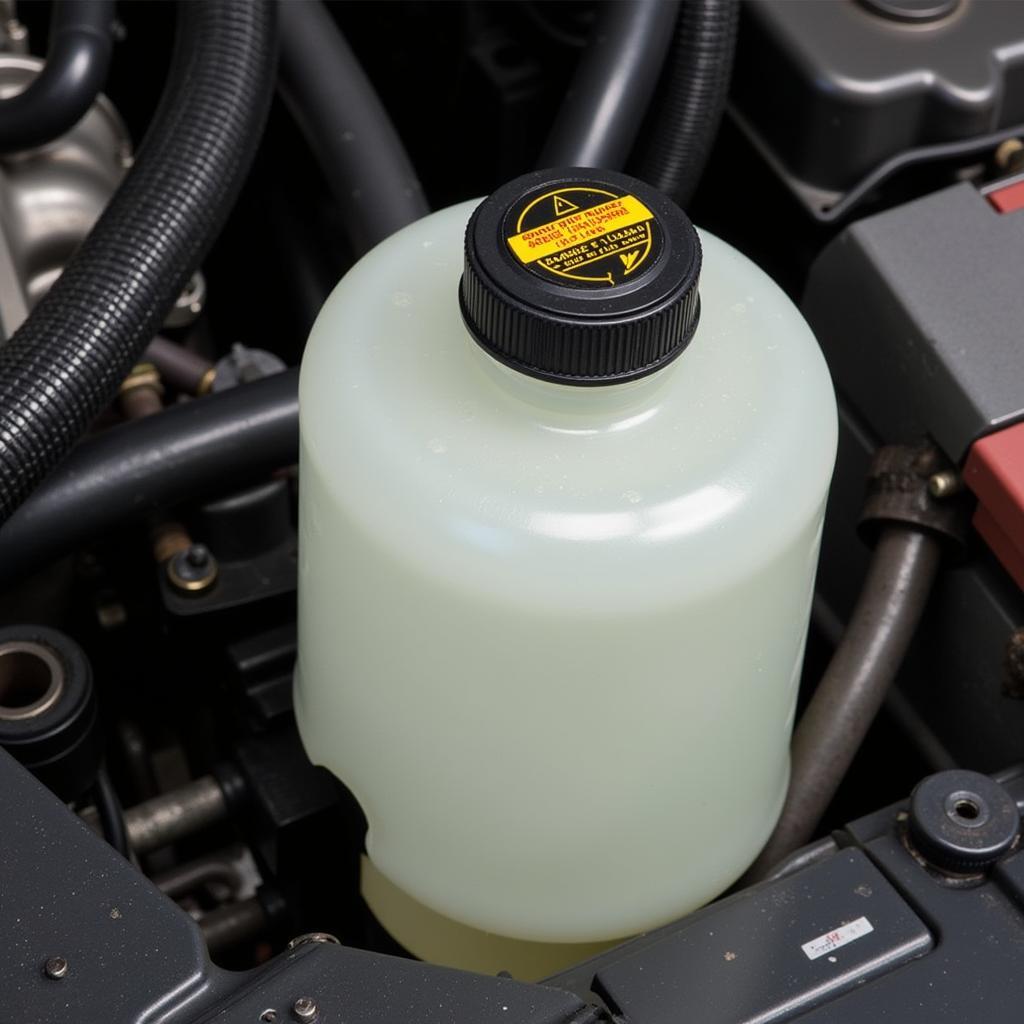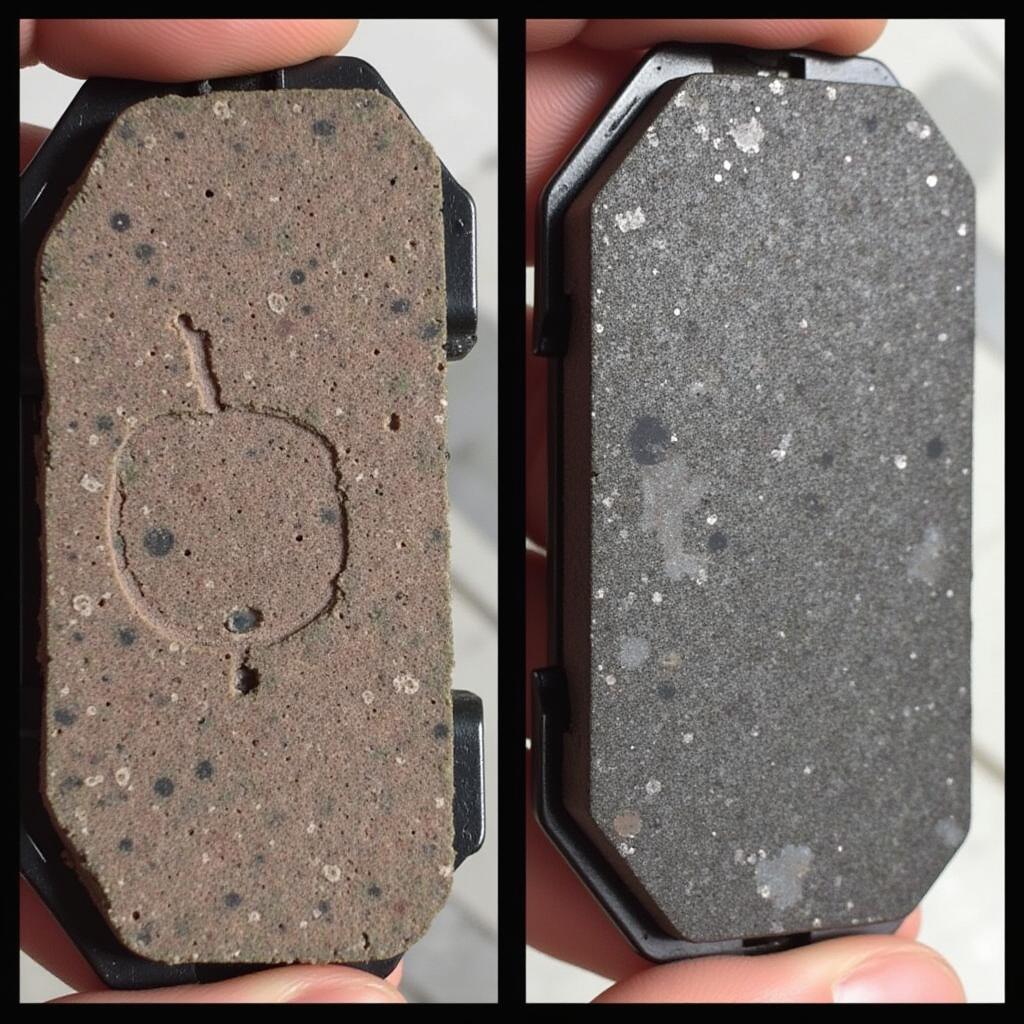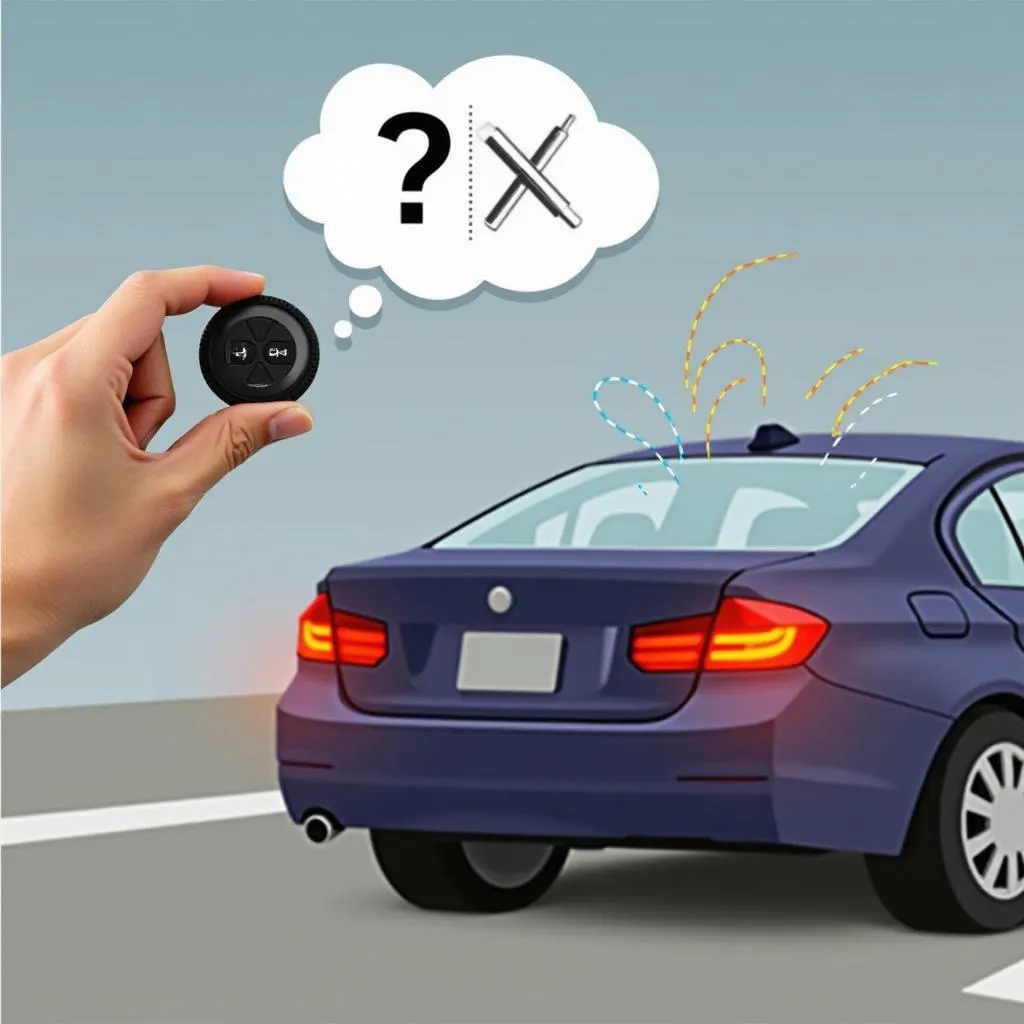The brake warning light on your third-gen Camaro is a crucial safety feature, illuminating on the dashboard to signal potential issues within your braking system. Ignoring this warning light can lead to dangerous situations, affecting your ability to stop safely and efficiently.
This article explores the common causes behind a lit brake warning light on your third-gen Camaro and provides a step-by-step guide on troubleshooting and addressing the issue.
Common Causes of a Lit Brake Warning Light
Several factors can trigger the brake warning light on your third-gen Camaro. Here’s a breakdown of the most frequent culprits:
1. Low Brake Fluid Level
Low brake fluid is one of the most common reasons for a lit brake warning light. Brake fluid, responsible for transmitting force when you press the brake pedal, can diminish due to leaks in the system or worn-out brake pads.
 Low Brake Fluid Reservoir
Low Brake Fluid Reservoir
2. Worn Brake Pads
Brake pads, essential for gripping the brake rotors and slowing down your vehicle, have a limited lifespan. As they wear down, the brake fluid level naturally drops. When the pads wear beyond a certain point, the brake warning light illuminates.
 Worn Brake Pads
Worn Brake Pads
3. Brake System Leaks
Leaks within the brake system, often originating from brake lines, hoses, or calipers, can lead to a drop in brake fluid pressure and trigger the warning light. Inspecting your Camaro for any signs of brake fluid leaks, such as wet spots near the wheels or under the vehicle, is crucial.
4. Faulty Brake Light Switch
The brake light switch, activated when you press the brake pedal, controls the brake lights and sends a signal to the brake warning system. A malfunctioning switch can disrupt this process, leading to an illuminated warning light.
5. ABS Issue
While less common in third-gen Camaros compared to modern vehicles, issues with the Anti-lock Braking System (ABS) can also trigger the brake warning light. This usually indicates a problem with the ABS module, wheel speed sensors, or related wiring.
Troubleshooting the Brake Warning Light
Follow these steps to diagnose and resolve the issue if your third-gen Camaro’s brake warning light comes on:
-
Check the Brake Fluid Level: Park on a level surface and locate the brake fluid reservoir, usually a translucent plastic container mounted on the firewall. Verify the fluid level is between the minimum and maximum markings.
-
Inspect for Brake Fluid Leaks: Carefully examine the area around the brake master cylinder, brake lines, hoses, and calipers for any signs of leaks, which might appear as wet spots or drips.
-
Inspect the Brake Pads: If you have mechanical experience, check the brake pad thickness through the wheel spokes. If they appear thin or worn, a replacement is likely necessary.
“Ignoring excessively worn brake pads can damage the rotors and significantly reduce your braking performance,” advises seasoned mechanic John Miller. “Always replace your brake pads at the recommended intervals or sooner if you notice any unusual noises or vibrations while braking.”
-
Test the Brake Light Switch: With the engine off, press and release the brake pedal while observing the brake lights. If the lights don’t illuminate, the brake light switch may be faulty and require replacement.
-
Consult a Professional: If you can’t identify the cause or lack the experience to perform the necessary repairs, it’s crucial to seek assistance from a qualified mechanic specializing in third-gen Camaros.
Conclusion
Addressing a lit brake warning light on your third-gen Camaro is critical for ensuring your safety and the vehicle’s optimal performance. By following the troubleshooting steps outlined in this article, you can identify the root cause and take appropriate action, whether it’s adding brake fluid, replacing worn components, or consulting a qualified mechanic. Remember, prioritizing your Camaro’s braking system ensures safe and enjoyable driving experiences for years to come.

